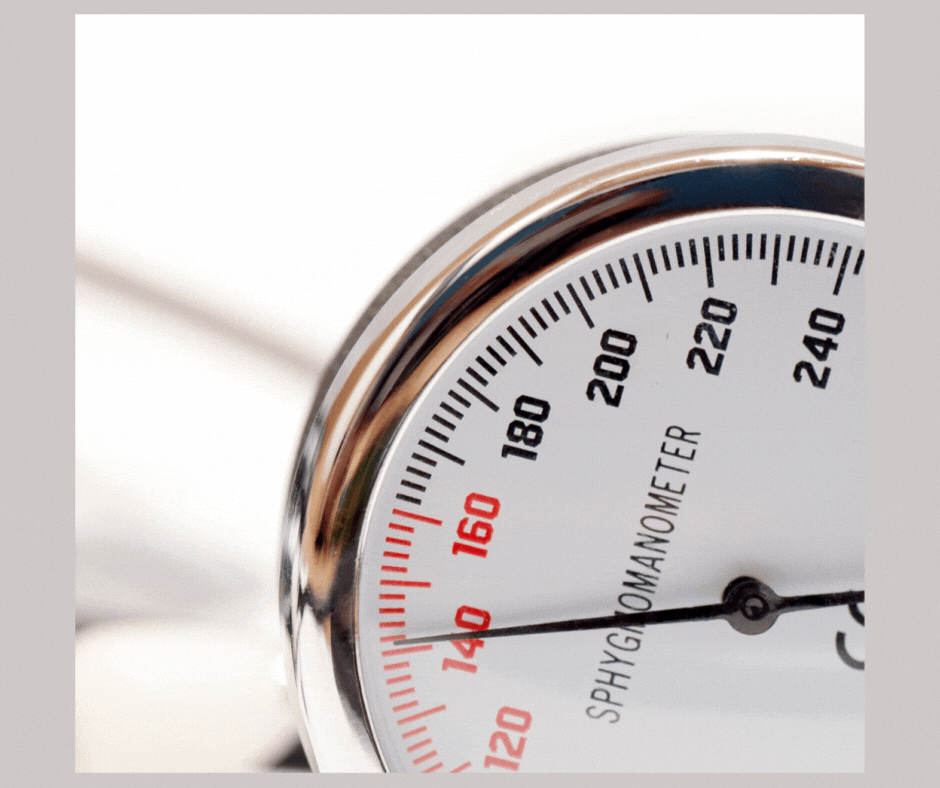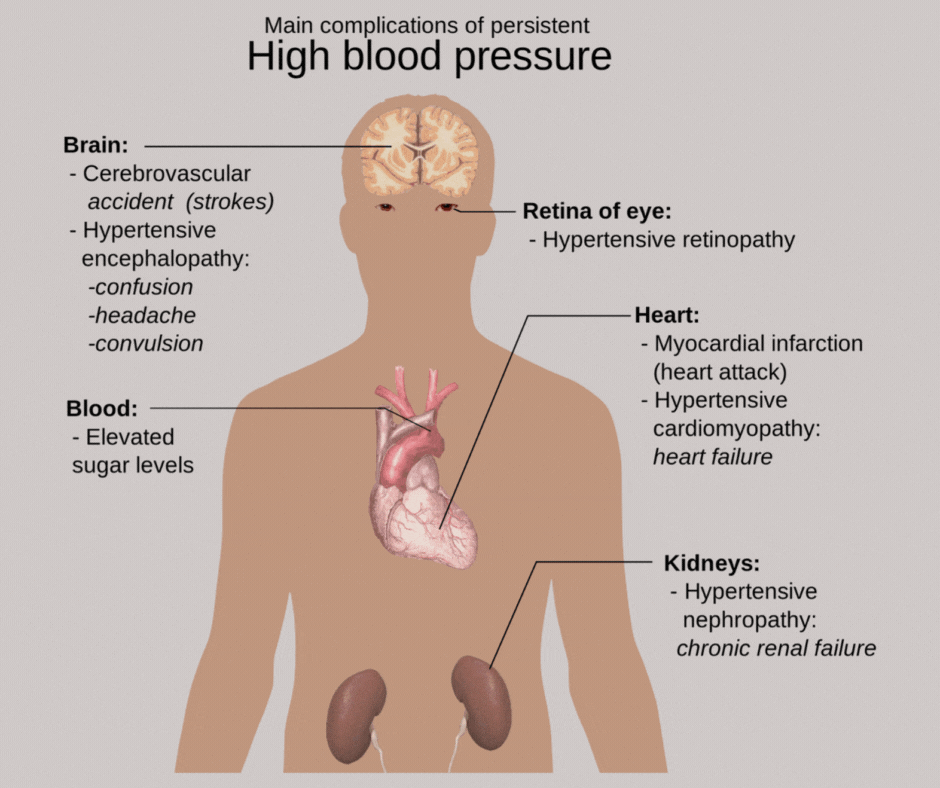How to Use Clinical Hypnosis for Regulating Blood Pressure
- jgiove
- Dec 10, 2022
- 7 min read
Updated: May 3
If you're exploring natural methods to manage high blood pressure, clinical hypnosis offers a promising approach. In this article, Joseph R. Giove explains how guided hypnosis can help you reduce stress and anxiety—key contributors to hypertension. By entering a deeply relaxed state, you can access your subconscious mind to adopt healthier responses to stress, potentially lowering your blood pressure over time. The article outlines how hypnosis activates the parasympathetic nervous system, promoting relaxation and reducing the 'fight or flight' response that elevates blood pressure. Giove also emphasizes the importance of integrating hypnosis with lifestyle changes like regular exercise, a balanced diet, and adequate sleep. Before beginning any new treatment, it's essential to consult with your healthcare provider to ensure it's appropriate for your individual health needs.
Clinical hypnosis is a safe, and powerful, tool for helping individuals regulate their blood pressure. It can help individuals to reduce their anxiety, which can in turn help reduce their blood pressure. With the help of a qualified and experienced Clinical Hypnotist, individuals can learn to relax and access their unconscious mind to bring about a desired change in their blood pressure.
Blood pressure is a measure of the force of blood pushing against the walls of your arteries. It's measured in millimeters of mercury (mm Hg).
High blood pressure is a major risk factor for heart disease, stroke, and chronic kidney disease. It's one of the most common silent killers in the United States, according to the American Heart Association.

High blood pressure is a serious condition that, if left untreated, can lead to life-threatening health consequences. And while there are many ways to lower blood pressure, it's possible that many people don't even know they have high blood pressure.
This is just a quick note to remind you that our initial consultation with you will be free of charge. The purpose of this meeting is to give both of us the opportunity to discuss how we may be of assistance moving forward. In order to evaluate the health benefits of clinical hypnosis, it is advisable to have an informal session unaffected by the costs of care, or any professional help. We feel that it's important to have a Stress-free Consultation. Feel free to call the office now, or anytime that's convenient for you or your loved one.
Okay, let's dig a little deeper into how your Cardiovascular System works, and then how we may be of help. When your heart pumps blood to your body, the force exerted against the walls of your arteries is measured as blood pressure. The term hypertension, which I'm sure you've heard before, refers to high blood pressure.
High blood pressure can lead to a variety of medical complications if left untreated. A few of these health conditions include heart disease, stroke, kidney failure, and eye problems, as well as others.
There are two numbers associated with blood pressure readings. The top number is referred to as systolic blood pressure. The bottom number represents the diastolic blood pressure. An example of this would be 120 over 80 (written as 120/80 mm Hg).
It is possible for one or both of these numbers to be too high. (Please note that these statistics are for people who do not take blood pressure medications and do not have any medical conditions.)
Your blood pressure should be below 120/80 mm Hg most of the time if you have normal blood pressure.
A person with high blood pressure (hypertension) has a reading of 130/80 mm Hg or more most of the time on either of their blood pressure readings.
Blood pressure is elevated when the top number is 120-130 mm Hg, and the bottom number is more than 80 mm Hg.
Doctors may want your blood pressure to be even lower if you have heart or kidney problems or if you have recently suffered a stroke. We require that the first step you take is to discuss your Blood Pressure with your doctor, to uncover any underlying medical issues that need to be addressed now.
Clinical Hypnosis is a completely safe, and non-invasive, method to regulate blood pressure. It can help individuals to reduce their stress and anxiety, which can in turn help reduce their blood pressure. With the help of a qualified and experienced Clinical Hypnotist, like myself, individuals can learn to relax and access their unconscious mind to bring about a change in their blood pressure.

Broadly stated, Clinical Hypnosis uses hypnosis to help people overcome psychological and physical health issues. Thankfully, Hypnosis has been found to be effective in reducing high blood pressure in many individuals seeking help. During hypnosis, a person is guided into a state of deep relaxation where they are more open to suggestions. In the case of high blood pressure, a qualified hypnotist will "suggest" that the person's nervous system relaxes, activating the parasympathetic branch of the autonomic nervous system and help blood pressure decrease to a healthy level.
This may sound like a simple process, but these suggestions, along with other lifestyle changes and stress reduction techniques I teach, like self-hypnosis, can lead to physical relaxation of the muscles that surround arteries, veins and capillaries and a reduction in blood pressure.
Stress and high blood pressure are closely connected. When a person is stressed, the body's fight or flight response is activated, causing the heart to beat faster, the sympathetic nervous system to become activated and the blood vessels to become constricted. This can lead to a temporary increase in blood pressure.
If a person experiences chronic stress, the body's fight or flight response can be constantly activated, leading to a sustained increase in blood pressure. Over time, this can lead to chronic high blood pressure or hypertension, which as you know can increase the risk of heart disease, stroke, and other health problems.
Hypnosis can simultaneously help in reducing both stress and lowering blood pressure. This is because hypnosis can seemingly have a calming effect on the entire body. As we had stated earlier, during hypnosis, the Hypnotist may provide the individual with positive suggestions aimed at reducing stress and anxiety. This can help to lower blood pressure by decreasing the activity of the sympathetic nervous system, which is responsible for the body's fight or flight response.

Clinical Hypnosis can help with each of the activities below, all of which can reduce stress and lower blood pressure, including:
Getting Exercise regularly: Physical activity can help to reduce stress and lower blood pressure by releasing endorphins, which are chemicals in the brain that can improve mood and reduce feelings of stress.
Eating a healthy diet: A diet that is rich in fruits, vegetables, whole grains, and lean protein can help to reduce stress and lower blood pressure. Avoiding foods that are high in salt, sugar, and saturated fat can also help to keep blood pressure at a healthy level.
Getting enough sleep: Sleep is essential for good physical and mental health. Aim for 7-9 hours of sleep per night to reduce stress and lower blood pressure. Hypnosis is the safest Sleep-aid there is and with no side effects.
Conscious breathing, meditation, self-hypnosis, and other relaxation techniques can help to reduce stress and lower blood pressure. These techniques can also improve overall well-being and help to manage stress more effectively.
Limit alcohol and caffeine: Consuming too much alcohol and caffeine can increase stress and raise blood pressure. Limiting these substances can help to reduce stress and lower blood pressure.
Get in touch with us today if you or someone you love would like to talk about any of the above Blood Pressure, or Stress, issues.
As a Certified Hypnotist, I specialize in helping people with all of the issues mentioned above, as well as many, many, other conditions.
Call us anytime at 925-215-4017 for a Free Phone Consultation.

It is important to note, however, that clinical hypnosis should only be used in conjunction with other treatments for high blood pressure, as recommended by a healthcare provider.
Causes
Blood pressure can be affected by a number of factors, including:
Your body's water and salt content
Whether you have kidney disease, a nervous system disorder, or a blood vessel disorder
The level of your hormones
As you grow older, you are more likely to be told that your blood pressure is too high. The reason for this is that your blood vessels become stiffer as you age. This results in an increase in blood pressure. The risk of stroke, heart attack, heart failure, kidney disease, or early death increases with high blood pressure.
High blood pressure is more likely to occur if you:
Are African American
Are obese
Stressed or anxious on a regular basis
The consumption of alcohol is excessive (more than one drink per day for women and more than two drinks per day for men).
Too much salt in the diet
High blood pressure in the family
Have diabetes
Smoke
The majority of the time, there is no known cause of high blood pressure. Hypertension of this type is known as essential hypertension.
It is called secondary hypertension when high blood pressure is caused by another medical condition or medication you are taking. There are several causes of secondary hypertension, including:
Chronic kidney disease
Adrenal gland disorders (such as pheochromocytoma and Cushing syndrome)
Hyperparathyroidism
Pregnancy or preeclampsia
Medications such as birth control pills, diet pills, some cold medicines, migraine medications, corticosteroids, some antipsychotics, and certain cancer medications
An artery that supplies blood to the kidneys is narrowed (renal artery stenosis).
A condition known as obstructive sleep apnea (OSA)
Clinical hypnosis is a powerful tool for helping individuals regulate their blood pressure. It can help individuals to reduce their anxiety, which can in turn help to reduce their blood pressure. With the help of a qualified and experienced Clinical Hypnotist, individuals can learn to relax and access their unconscious mind to bring about a change in their blood pressure.
1. Start with relaxation techniques. Before attempting to use hypnosis for regulating blood pressure, it is important, to begin with relaxation techniques. A hypnotherapist may use progressive muscle relaxation, visualization, meditation, and other techniques to help the individual relax and reduce their anxiety levels.
2. Induce a hypnotic trance. Once the individual is relaxed, the hypnotherapist can then help them to enter a hypnotic trance. This can be done through verbal or visual cues, such as a swinging watch or the sound of the therapist’s voice.
3. Create positive suggestions. Once the individual is in the hypnotic trance, the hypnotherapist can then help them to visualize and create positive suggestions that can help to lower their blood pressure. For example, they may suggest that the individual’s body is relaxed and their blood pressure is decreasing.




Comments